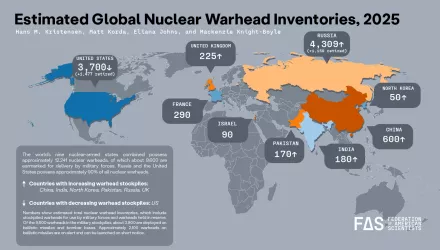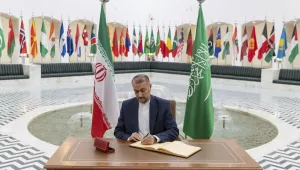RECENTLY, China has been playing a remarkably proactive role in trying to facilitate a resolution to the nuclear crisis. Such behaviour is in direct contrast to its discreet demeanour during the 1994 phase of the nuclear imbroglio.
What accounts for this major transformation in the conduct of Chinese foreign policy? The answer, in large part, resides in China's policy of xiaokang.
Originally mentioned in the Shijing, China's first collection of poems that dates back some 2,000 years, Chinese philosophers used the term xiaokang to refer to a comfortable, orderly society that honours ceremony and propriety.
Former leader Deng Xiaoping went on to develop an economic xiaokang strategy that became the basis of his famous 'three-step development strategy' for building a substantial middle-class society in China.
In recent months, xiaokang has become the Chinese leadership's dominant lens of analysis for dealing with North Korea. Contrary to the conventional thinking in Washington, China's North Korea policy goes beyond security concerns to encompass larger considerations about xiaokang.
A deeper examination of the relationship between xiaokang and China's North Korea policy reveals the driving force of and limitations to the current six-party talks process.
Why is xiaokang so important to China? Achieving a US$3,000 (S$5,130) gross domestic product per capita target by 2020 is currently the Chinese leadership's key economic development goal. The significance of this figure is that the leadership believes attaining it is critical to the formation of a stable and prosperous Chinese society.
To realise this goal, however, Beijing needs to prevent any threats to the North-east Asian security environment in order to maintain foreign investment inflows critical to job creation.
To ensure the regional stability required for internal economic development, the Chinese leadership initiated a major shift in its strategic thinking about North Korea that has manifested itself in a substantial change in China's policy towards the country. Recent interviews with influential Chinese government think-tank analysts who focus on this critical policy area yielded the following core findings.
First, Beijing is largely analysing the nuclear issue from a cost-benefit analysis, in terms of how the crisis is affecting xiaokang objectives - should the six-party talks ultimately collapse, China Inc may divest its North Korean partner, albeit peacefully.
Second, Beijing is beginning to explore how it should deal with North Korea in the event that the six-party talks collapse. Indeed, Chinese policy analysts are actively examining regime-change policies required to effect major economic and systemic reforms in North Korea. Such policies differ from the Pentagon's formulation of regime change as Beijing is exploring ways to structure a peaceful accommodation of North Korean leader Kim Jong Il rather than a disruptive regime collapse.
The focus is on examining ways to deal with Mr Kim and forge close working partnerships through Chinese Communist Party-Korean Workers Party and People's Liberation Army-Korean People's Army connections.
The third key finding is a significant change that has recently occurred in China's conduct of its North Korea policy. China is increasingly proactive and multilateral in its behaviour compared to its previously risk-averse, insular tendencies. Indeed, traditionally a behind-the-scenes power broker, Beijing has taken a more visible role in encouraging Mr Kim to re-engage in negotiations with the United States.
South Korea's Yonhap news agency, quoting the official North Korean state news service, reported earlier this week that six-party talks are scheduled to resume in Beijing on Feb 25. As the enormous difficulties with re-starting the multilateral talks demonstrate, China can't resolve the crisis by itself.
In this respect, strong Sino-US collaboration in leading a multilateral effort to end the crisis is long overdue. Until recently, the Bush administration's approach to dealing with North Korea has centred on largely ignoring the reclusive regime and gradually cutting off its overseas sources of illicit funds. However, as former defence secretary William Perry has stated, an approach is not a policy.
China's focus on achieving its xiaokang objectives presents the US with a unique opportunity to engage Chinese leaders in forging an effective strategy for negotiating and implementing a comprehensive resolution to the nuclear imbroglio.
Unofficial US delegations are no substitute for the difficult negotiations required to peacefully unravel the crisis. Superficial US diplomatic manoeuvrings are clearly not producing results. China has already begun to act substantively. When will the US?
The writer is a fellow at the Belfer Center for Science and International Affairs at Harvard University's John F. Kennedy School of Government. His research focuses on China's efforts to resolve the North Korean nuclear crisis.
Park, John. “China Takes 'Xiaokang' Approach to N. Korea.” The Straits Times, February 5, 2004




